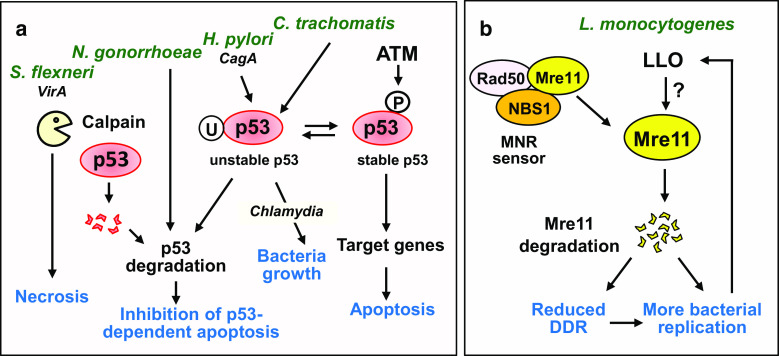Fig. 2.
Genotoxic bacteria degrade key components of the DDR pathway. a Several genotoxic bacteria strains affect the stability of p53. When DSBs occur, ATM phosphorylates p53 which becomes stable, induces the expression of apoptotic genes and arrests the cell cycle. In the absence of DSBs, p53 is ubiquitinated by MDM2 ubiquitine ligase (or HDM2, the human homologue) and then degraded through the proteasome. H. pylori, N. gonorrhoeae, S. flexneri and C. trachomatis interfere with the normal pathway by promoting p53 degradation and by inhibiting p53-dependent apoptosis. Sustained depletion of p53 is a key event for C. trachomatis growth. U ubiquitin, P phosphorylation. b L. monocytogenes, through the action of Listeriolysin O (LLO), induces proteasome-independent degradation of the DNA damage sensor Mre11, a component of the MNR complex. As a consequence, the DDR is blocked, the cell cycle is not arrested and cells do not die. Inhibition of DDR is a beneficial feature for successful Listeria infection and replication

